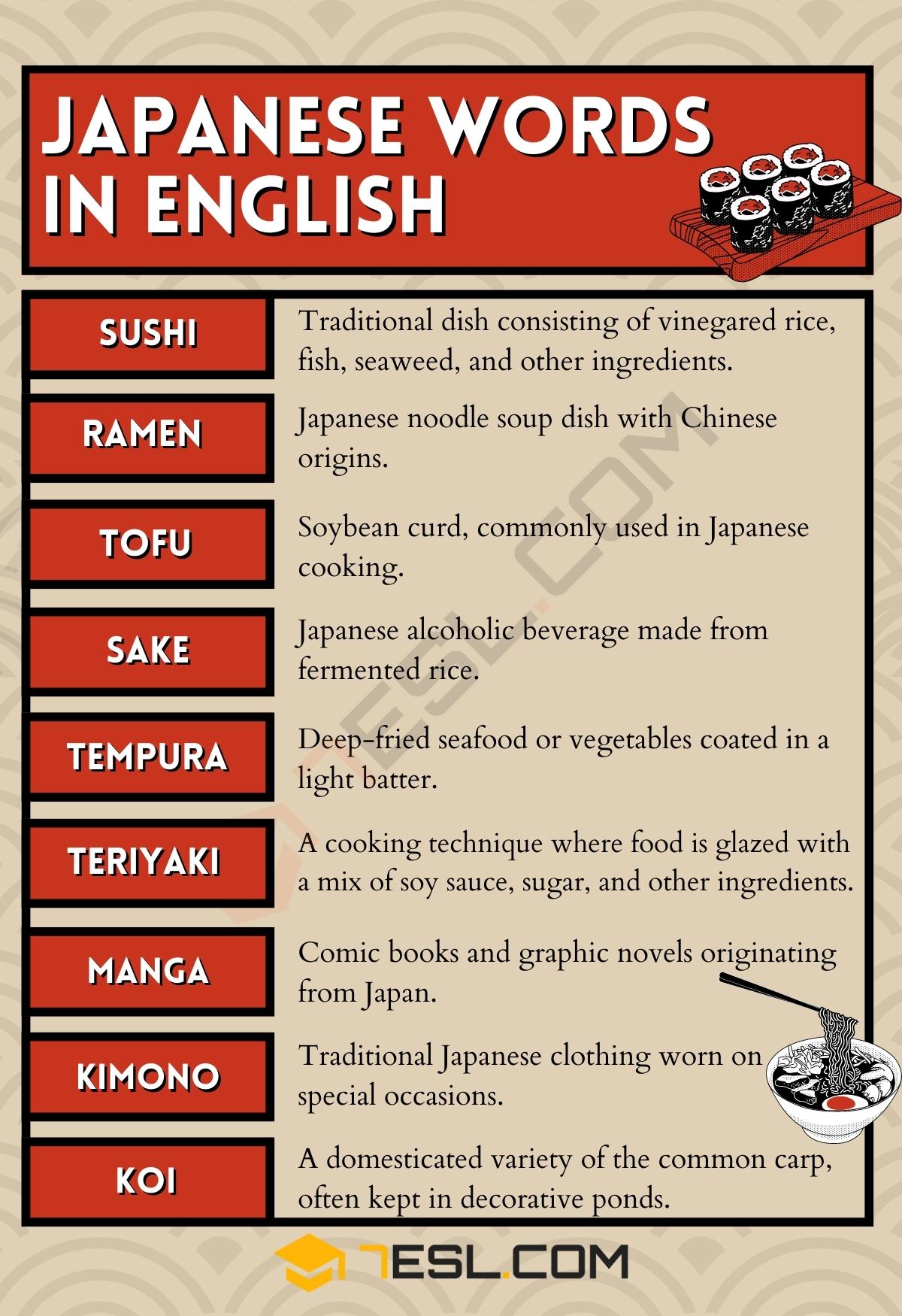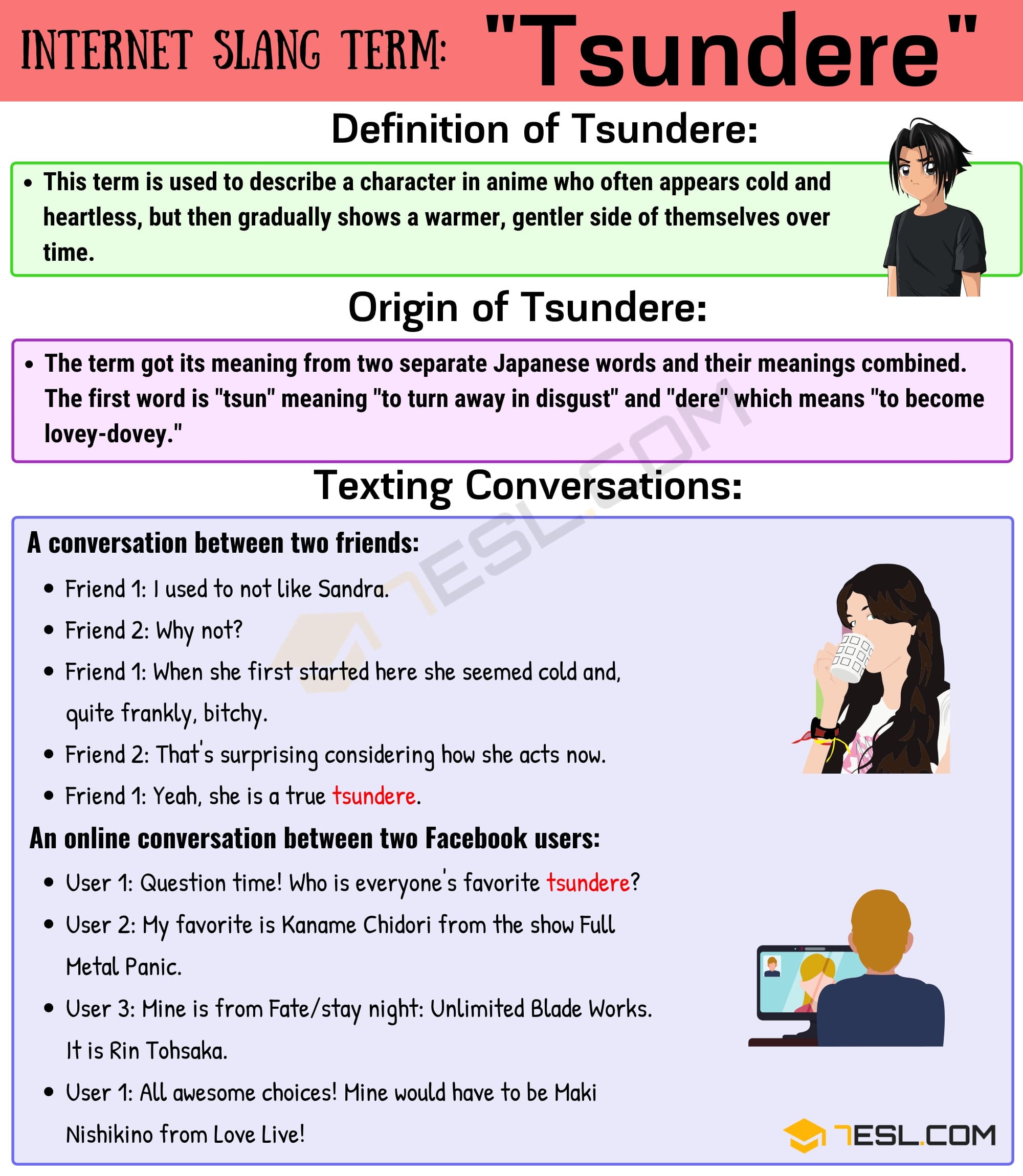Japanese Words
Contents
Japanese words have been steadily permeating the English language over the years, and many people may not even realize the origin of some of these words. This subtle integration has led to the seamless incorporation of Japanese terms into everyday conversation.
In this page, we will explore some of the most commonly used Japanese words in English, providing insights into the cultural backgrounds and etymologies that shape their meanings.
Common Japanese Words in English

Food and Drink | Japanese Words
Japanese cuisine and beverages have become popular around the world, resulting in many Japanese words entering the English language:
- Sushi: Traditional dish consisting of vinegared rice, fish, seaweed, and other ingredients.
- Ramen: Japanese noodle soup dish with Chinese origins.
- Tofu: Soybean curd, commonly used in Japanese cooking.
- Sake: Japanese alcoholic beverage made from fermented rice.
- Tempura: Deep-fried seafood or vegetables coated in a light batter.
- Teriyaki: A cooking technique where food is glazed with a mix of soy sauce, sugar, and other ingredients.
- Wasabi: A spicy, green condiment made from Japanese horseradish.
Arts and Culture | Japanese Words
In the arts and culture sphere, Japanese words have made a significant impact on the English language:
- Anime: Japanese style of hand-drawn or computer-animated films and TV shows.
- Manga: Comic books and graphic novels originating from Japan.
- Haiku: A form of Japanese poetry consisting of three lines with a 5-7-5 syllable pattern.
- Karaoke: An entertainment activity where people sing along to popular music tracks.
- Origami: The traditional Japanese art of folding paper into decorative shapes.
- Geisha: Female entertainers in Japan who perform classical music, dance, and other cultural arts.
- Kimono: Traditional Japanese clothing worn on special occasions.
Nature and Environment | Japanese Words
Japan is famous for its natural beauty and unique environmental features, leading to some Japanese words becoming commonplace in English:
- Tsunami: A large, destructive ocean wave caused by an underwater earthquake or volcanic eruption.
- Koi: A domesticated variety of the common carp, often kept in decorative ponds.
- Bonsai: The art of cultivating miniature trees in small containers.
- Zen: A school of Buddhism that emphasizes meditation, mindfulness, and simplicity.
Sports and Martial Arts | Japanese Words
Japanese sports and martial arts have gained international popularity, and many related terms have entered the English lexicon:
- Karate: A martial art emphasizing striking, kicking, and knee strikes.
- Judo: A martial art focusing on throws and grappling techniques.
- Sumo: A traditional Japanese sport where two wrestlers try to force each other out of a designated area or to touch the ground with anything other than their feet.
- Ninja: A covert agent or assassin in feudal Japan, skilled in the art of espionage and stealth.
- Sensei: A teacher or instructor, typically in martial arts or other areas of Japanese culture.
- Dojo: A training hall or school for martial arts.
These are just a few examples of Japanese words that have made their way into English, testifying to the widespread influence of Japanese culture, cuisine, and arts around the world.
Examples of Japanese Words
Tsundere Meaning
More interesting articles
- ‘Omae Wa Mou Shindeiru’ Meaning with Interesting Examples
- “Boku No Pico” Meaning, Origin and Examples
- “Gyaru” Meaning, Origin and Examples
- “Nani” Meaning, Origin and Examples
- Arigato Meaning, Origin and Examples
- NTR Meaning: What Does NTR Stand for?
- Sayori Meaning, Origin and Examples
- Senpai Meaning, Origin and Examples
- Waifu Meaning, Origin and Examples
- Yami Meaning, Origin and Examples
- Yandere Meaning, Origin and Examples

